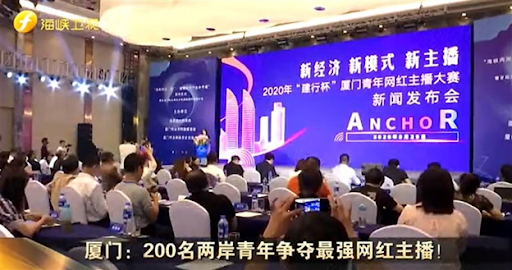Listen to the article
China’s Strategic Manipulation of Taiwanese Social Media Revealed in Military Documents
Chinese military planners have been systematically developing capabilities to influence Taiwan’s public opinion through social media manipulation since at least 2011, according to an analysis of previously overlooked primary source materials from China’s People’s Liberation Army (PLA).
Documents from the PLA Strategic Support Force’s Base 311, a unit specifically tasked with psychological warfare operations against Taiwan, reveal a deliberate evolution in Chinese thinking about social media manipulation and its application in Taiwan’s democratic processes.
While much attention has focused on the outcomes of alleged Chinese disinformation campaigns during Taiwan’s 2018 and 2020 elections, these military sources provide rare insight into the planning, preparation, and strategic thinking behind such operations.
A 2011 article from Huayi Broadcasting Company, identified as a regimental-grade unit subordinate to Base 311, already recognized the growing importance of social media in Taiwanese society. The article made specific recommendations for cross-strait propaganda, including expanding Chinese social media platforms into Taiwan and creating “public opinion situations of strength” favorable to Beijing.
Following the 2014 Sunflower Movement in Taiwan, which saw students protesting against a proposed trade agreement with China, Base 311’s interest in social media manipulation intensified. A November 2014 article acknowledged that platforms like Facebook and Twitter had “completely changed the traditional propaganda style” and called for researchers to understand Taiwan’s new generation using their “familiar style, vocabulary, context” to make propaganda “effectively land in Taiwan.”
The DPP’s electoral victory in 2016 marked a significant shift in Base 311’s approach. A May 2016 article explicitly called for “strengthening awareness of online public opinion intervention” and “expanding the cultivation and use of online opinion leaders” who could “guide Taiwanese online public opinion toward a direction favorable to us.”
By October 2018, just before Taiwan’s nine-in-one local elections, a technical article co-authored by Base 311 and National University of Defense Technology researchers outlined equipment requirements for “cognitive domain operations” on social media platforms. The paper specifically mentioned Facebook, Twitter, and LINE as platforms needing further exploration, and advocated for the development of “network propaganda technology,” including voice synthesis using deep learning and sentiment analysis through big data.
The article also suggested leveraging “military-local cooperation” and “existing platforms and channels” while “ensuring secrecy,” potentially indicating plans to work with both mainland and Taiwanese actors to spread manipulated content.
Other PLA units appear to have supported these efforts. A 2017 paper from a PLA Nanjing Political Institute graduate student provided practical guidance on how to blend in on Taiwanese social media, including adopting local language patterns to avoid detection.
These military documents contrast sharply with the approach of many researchers and Taiwan’s government, which have focused primarily on identifying examples of Chinese disinformation rather than understanding the strategic thinking behind it.
The findings highlight the need for a more balanced approach that incorporates both inputs (Chinese strategic planning) and outputs (observed disinformation) to better understand and counter such influence operations.
For Taiwan, which faces continuous information warfare as part of China’s broader pressure campaign, these insights into PLA thinking provide crucial context for defending its democratic processes and information environment against sophisticated manipulation efforts that have been years in the making.
Verify This Yourself
Use these professional tools to fact-check and investigate claims independently
Reverse Image Search
Check if this image has been used elsewhere or in different contexts
Ask Our AI About This Claim
Get instant answers with web-powered AI analysis
Related Fact-Checks
See what other fact-checkers have said about similar claims
Want More Verification Tools?
Access our full suite of professional disinformation monitoring and investigation tools




8 Comments
Wow, the details in these military documents really shed light on China’s systematic approach to social media manipulation in Taiwan. It’s a sophisticated and concerning strategy. I’ll be curious to see how this issue evolves going forward.
The details in these military documents provide valuable insight into China’s social media manipulation tactics against Taiwan. It’s a sophisticated and concerning approach that Taiwan will need to monitor closely and work to counter effectively.
Interesting to see the extent of China’s social media manipulation strategy against Taiwan. Seems like a concerning development in cross-strait tensions. I wonder how Taiwan is working to counter these influence operations.
As someone who follows developments in the Taiwan Strait, this report is quite alarming. China’s efforts to interfere in Taiwan’s domestic politics through social media are a serious threat to their democratic system. Taiwan will need to stay vigilant.
Agreed. Maintaining the integrity of Taiwan’s elections and information environment should be a top priority for the government and civil society.
This is a really troubling revelation about China’s digital influence operations targeting Taiwan. The systematic nature of their planning and strategy is quite concerning. I hope Taiwan can develop effective countermeasures to protect its democracy.
This type of information warfare is really troubling. China appears to be putting a lot of effort into swaying public opinion in Taiwan through coordinated social media campaigns. I hope Taiwan can find effective ways to protect its democratic processes.
Yes, it’s critical that Taiwan maintains a free and open information environment. Defending against foreign influence operations will be an ongoing challenge.